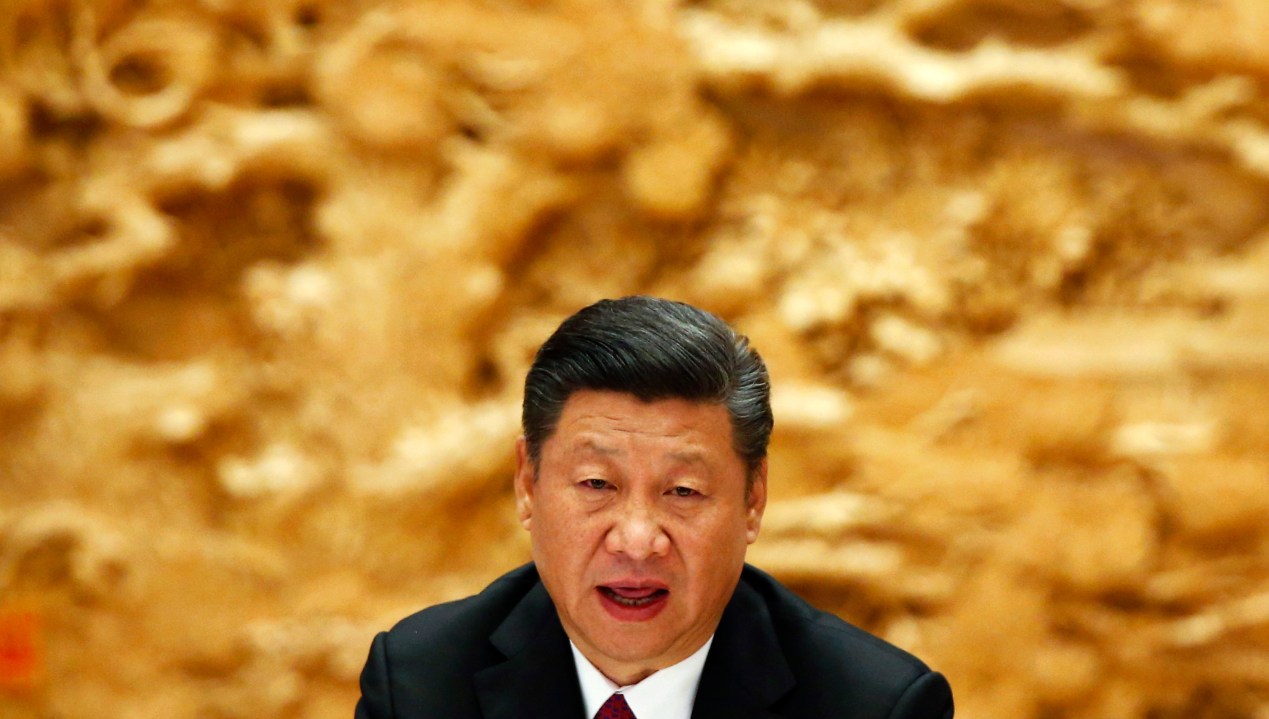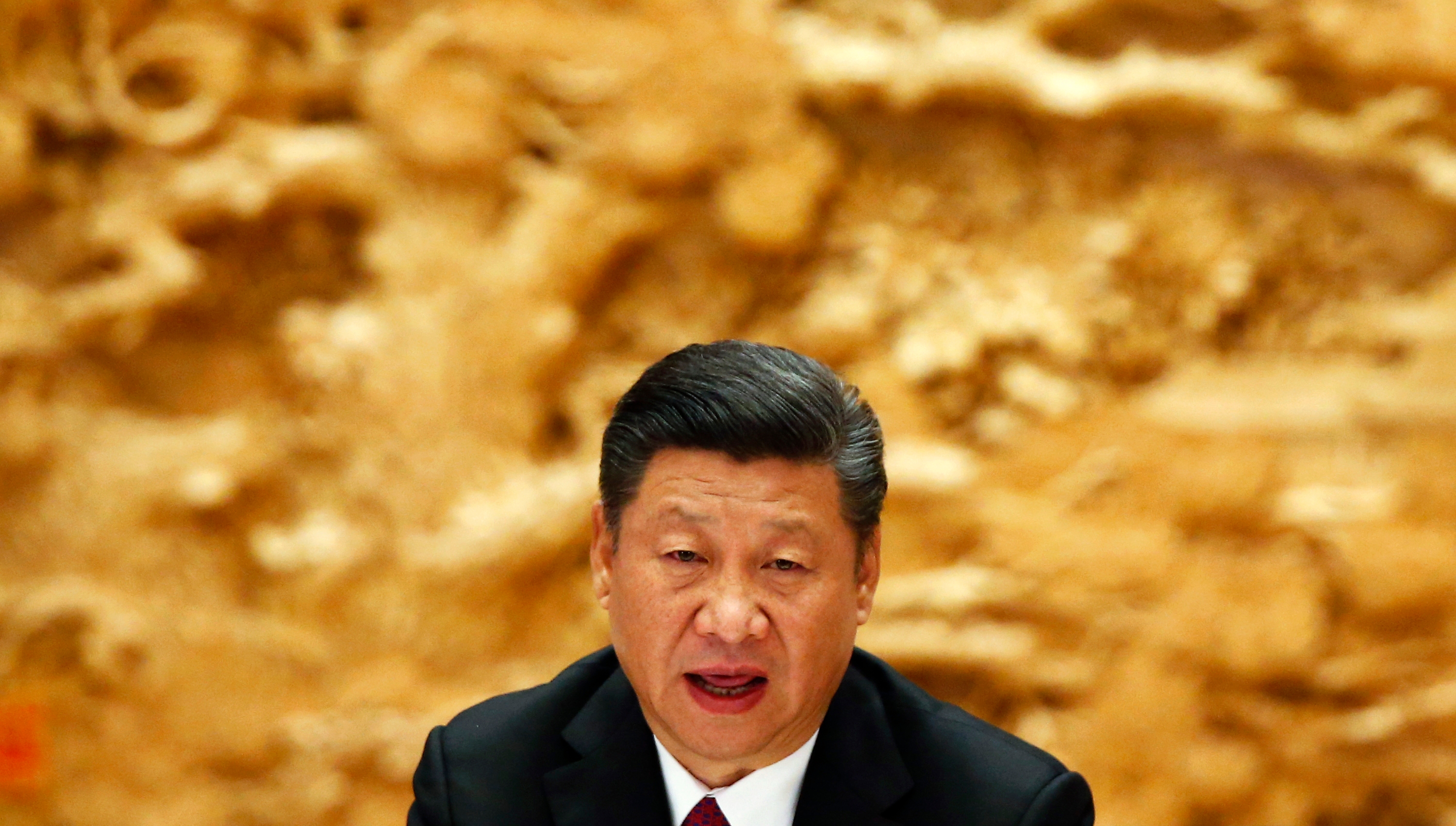It is hard to remember now, but just five years ago David Cameron’s No. 10 was declaring a ‘golden era’ of Sino-British ties. Now the US sees China as a ‘strategic rival’ and Britain has joined a growing coalition of Western nations attempting to limit Beijing’s power. There are certainly good reasons to be wary of China’s regime. But there’s also a clear risk that growing Sinophobia distorts the reality of Chinese behaviour, which is often far less strategic than is widely supposed.
This is particularly clear with respect to China’s ‘belt and road initiative’, an attempt to build a rail and maritime trade network across the globe. Launched in 2013, the belt and road is Xi Jinping’s signature foreign policy. Hawkish pundits generally depict the project as a grand strategy aimed at reshaping the world in China’s image. In truth, it is a rather loose, inchoate framework, primarily seeking to maintain China’s economic growth through promoting infrastructure connectivity with Eurasia and east Africa.
Anti-China hawks from New Delhi to Washington claim that the belt and road is all about ‘debt-trap diplomacy’. Beijing supposedly offers developing countries debt-fuelled infrastructure projects, knowing they will fall into debt distress and enabling China eventually to seize the asset thereby extending its strategic reach.
The reality is that China’s political system is highly fragmented and decentralised
The problem is – as shown in my new report for Chatham House, co-authored with Shahar Hameiri – this narrative simply isn’t true.
First, it gets China wrong. Western observers often see China as monolithic: a tightly-controlled, authoritarian regime, capable of the sort of coherent, strategic planning that our hapless elites can only dream of. The reality is that China’s political system is highly fragmented and decentralised – notwithstanding Xi’s efforts to improve coordination and purge corrupt officials.
The Covid-19 crisis demonstrated this. Local officials initially silenced doctors, and co-operation with the World Health Organisation was thwarted by rivalry between competing scientific bureaucracies. The politburo had to dispatch discipline inspection teams to the provinces to restore order. They publicly blasted local officials for ‘disobeying the unified command and control’ system, ‘refusing to execute’ superiors’ orders. Cadres were threatened and purged as the centre struggled to generate a coherent and effective response. China is clearly not immune from the governance problems that plague all states.
As for China’s development financing system, it is simply too fragmented and poorly coordinated to use the belt and road initiative as part of a well-planned grand strategy. Diplomatic and strategic agencies are hardly ever involved. Moreover, Chinese development financing has always been recipient-driven: disbursements start with requests from foreign governments, not Chinese strategists.
Accordingly, policy documents guiding the belt and road are remarkably vague. They are largely populated by provincial governments seeking central funding for their pet projects and to support struggling state-owned enterprises. China’s development financing regime is also systematically biased towards helping Chinese companies expand overseas. Despite efforts to improve control, proper scrutiny and risk management remain ineffective, resulting in piecemeal approvals and many failed projects. Around half of China’s overseas investments are loss-making.
The debt-trap diplomacy narrative also overlooks the interests and agency of recipient governments. Without their support, nothing can actually get built in the name of the belt and road. And, far from being guileless dupes or helpless victims, they participate in the scheme for their own reasons.
Developing countries need vast amounts of infrastructure investment to reduce poverty and fuel growth. Incumbent regimes can also exploit megaprojects to extract kickbacks, favour electorally important constituencies and insert crony capitalists into lucrative joint ventures.
Sometimes elite greed overwhelms rational development planning. Things can also go wrong when host governments fail to regulate Chinese developers properly or fail to consult or compensate affected communities adequately.
Sri Lanka’s Hambantota port – where the debt-trap narrative began – shows how these dynamics play out. The port project was not proposed by Beijing’s strategists but was a longstanding dream of Sri Lanka’s ruling Rajapaksa family, encouraged by Chinese construction companies seeking lucrative contracts. Beijing’s development financing system waved through the port and other projects, resulting in several white elephants, including a hardly-used international airport. This stemmed from the Rajapaksa regime’s desire to win prestige and electoral support, while also feathering its own nest, rather than some cunning Chinese strategy.
As for Sri Lanka’s debt crisis, this was not caused by Chinese loans – which comprise just 6 per cent of the country’s foreign debt – but excessive borrowing on Western capital markets lubricated by US quantitative easing. Xi helped Sri Lanka by arranging for a state-owned enterprise to ‘invest’ $1.2 billion (£914 million) in exchange for a 99-year lease on Hambantota port. This was used to pay off Western creditors, not China: the loans for the port remain on the books. The Chinese state-owned enterprise is now saddled with trying to make a white elephant profitable. As for China’s navy, it is barred from using Hambantota port, which has instead hosted US and Indian naval visits. Sri Lanka’s own southern naval command is slated to relocate there.
On closer inspection, then, belt and road investments are often not all they appear. We must discount cock-up before assuming conspiracy. China’s party-state is not the all-knowing, all-seeing monolith of Western imagination; it is often dysfunctional and forced to clean up its mistakes. Like all businesses, Chinese state-owned enterprises are primarily profit-driven, and if risk is shunted onto others, moral hazard ensues. Overambitious or careless officials on both sides can wave through ill-conceived deals. Far from serving China’s grand strategy, this has often created blowback for Beijing, alienating other countries.
Rather than peddling myths about China, Western officials would be better advised to study its messy realities. Rather than trying to deter developing countries from accepting Chinese development finance, they should provide meaningful alternatives, and help developing countries to manage Chinese investment, loans and contractors for the benefit of their own people.







Comments